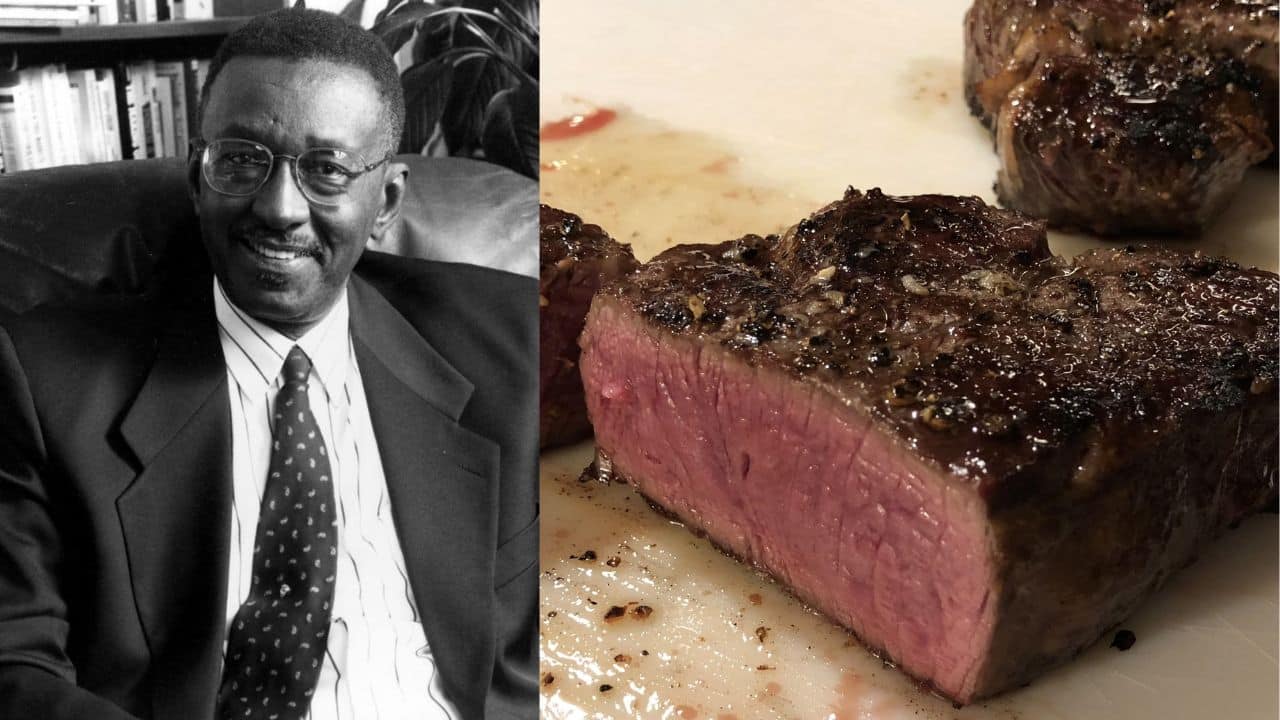Consider filet mignon and chuck steak. Assume-realistically-that consumers prefer the former. Then the question becomes: why is it, despite consumer preferences, that chuck steak sells at all? The fact is that chuck steak outsells filet mignon. How does something less preferred compete with something more preferred?
It does so by offering what economists call “compensating differences.” In other words, as you wheel your shopping cart down the aisle, chuck steak “says” to you, “I don’t look as nice as filet mignon; I’m not as tender and tasty; but I’m not as expensive either. I sell for $4.00 a pound while filet mignon sells for $9.00.” Chuck steak therefore in effect offers to “pay” you $5.00 per pound for its “inferiority,” a compensating difference.
Suppose sellers of filet mignon wanted to raise their sales by colluding against the less-preferred competitor. What would be their most effective strategy? Short of getting a law passed prohibiting sales of chuck steak, it would be to push for a law establishing minimum prices for steak. What would be the effect of a minimum steak law of, say, $9 per pound for all steaks?
Put yourself in the position of the shopper wheeling his cart down the aisle after the enactment of such a law. Chuck steak now says to you, “I don’t look as nice as filet mignon, I’m not as tender and tasty, and I sell for the same price as my preferred competitor, filet mignon. Buy me.” That plea would fall on deaf ears. You would say to yourself, “Why should I buy chuck steak when it sells for the same price as filet mignon, which I prefer anyway?”
Such a sentiment exemplifies the basic law of demand: the lower the cost of doing something, the more of it will be done. In this case, the cost of discriminating against, not selecting, chuck steak is effectively zero. Prior to the legislated minimum price, the cost of discriminating against chuck steak was $5.00 per pound, the difference in price. The steak example applies to any mandated minimum price.
In the case of minimum wage laws, a mandated minimum lowers the cost of-hence encourages-the indulgence of racial preference in the labor market. Some might object to the validity of my example by saying that people are not the same thing as cuts of meat. That is true-just as steel balls are not the same as people. However, although steel balls and people are different, both obey the law of gravity.
The independent influence of gravity on a steel ball’s acceleration is 32 feet per second per second and its influence on a person is exactly the same. Similarly, quantities demanded for cuts of meat are influenced by the law of demand, and so are quantities demanded of a person’s labor services.
– Walter E. Williams, Ph.D., Race and Economics (p. 48-9)
New Episode of The Kyle Anzalone Show [GUEST] Dave DeCamp: The Escalating Ukraine Proxy War
The intertwining of military aid, global alliances, and political positioning takes center stage as Dave DeCamp, news editor at AntiWar.com, joins Kyle Anzalone to unpack the most pressing foreign policy developments happening beneath mainstream headlines. Trump's...




